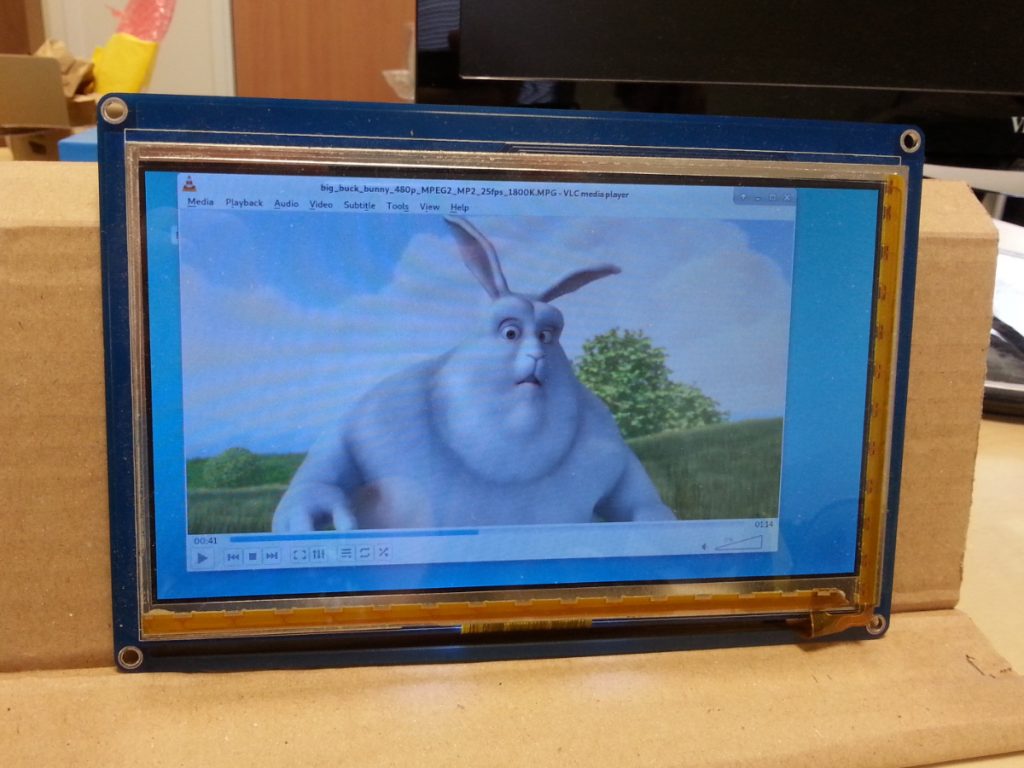This week started off with numerous reviews received on the patchset introducing the Sunxi-Cedrus VPU driver. Lots of constructive comments, questions and improvements were discussed, which will help improve the driver for the next iteration of the series. Changes to other drivers will also have to be implemented, in particular to the SRAM controller found on Allwinner platforms, which needs to handle access to the SRAM by the VPU.
Maxime worked on refactoring needed to ease the support for the H264, rebasing on the latest version submitted upstream and making sure that everything still works fine. He eventually pushed them in our 4.17 branch on github, and will now focus on landing H264 support itself.
The work carried out by Paul this week was focused on the libva-cedrus VAAPI backend, which supports the Sunxi-Cedrus kernel driver on the userspace side. The backend is used by VLC (when it is configured to use VAAPI for video decoding) to play MPEG2 videos such as the ones available from the Linaro sample media. libva-cedrus was significantly improved over the week, with around 80 commits featuring a major cleanup of the code that includes, along with other changes:
- coding style harmonization
- proper error checking and reporting instead of assertions
- the removal of the unsupported MPEG4 code
- the introduction of dedicated v4l2 helpers based on those developed for cedrus-frame-test
- the reorganization of v4l2 source and destination buffers management, where both are now tied to a specific surface and kept in sync
- the update of the definitions to match the latest patchset
- the implementation of the final rendering at picture end time
This work significantly improved the compatibility with VLC, which was previously dropping several frames. With these changes, VLC is now properly showing the decoded videos playing close to 25 fps when there is no software scaling involved. The performance is not as good with VLC as it is with cedrus-frame-test, which uses a dedicated DRM plane directly while VLC and libva-cedrus use the software untiling code and buffer copies to display each frame.

Some attention was also given to GStreamer over the week. Although compatibility with our VAAPI backend and display pipeline is not there yet, the VAAPI backend rewrite allowed moving forward and GStreamer now displays the first decoded frame. While the operations for decoding the frames are correctly scheduled, they are only requested to be displayed sporadically, with no effect on the screen. This issue will need to be further investigated before a basic decoding pipeline can be used with GStreamer, with a video output either to a regular X window or to a DRM plane directly. MPV was also tested out this week, without much success in coordinating the rendering and display parts involved with the VAAPI pipeline. Thus, MPV support will also require more investigation before it can be properly supported.
While we initially decided to focus on GStreamer for implementing DMABUF buffer sharing between the VPU and the display engine, cedrus-frame-test (the standalone userspace implementation supporting the Sunxi-Cedrus VPU driver) allows us to directly work on implementing DMABUF support. So even though GStreamer does not work with libva-cedrus at this point, DMABUF support was started in a dedicated branch of the cedrus-frame-test repository. DMABUF is currently failing on the kernel side, when validating the page number of the requested DMA buffer. In this area as well, further investigation and work will be needed.
In the meantime, the Sunxi-Cedrus page on the linux-sunxi wiki was updated with the latest status of Sunxi-Cedrus support, instructions to build and install libva-cedrus and cedrus-frame-test as well as configure VLC for decoding MPEG2 videos. Feedback and test reports are welcome, especially regarding videos that are not decoded properly and show visual artifacts. The community around Sunxi-Cedrus hangs out on the #linux-sunxi and #cedrus channels of the freenode IRC network, so it is the best place to ask questions and discuss all things related to Sunxi-Cedrus!
Stay tuned for next week’s progress report!
